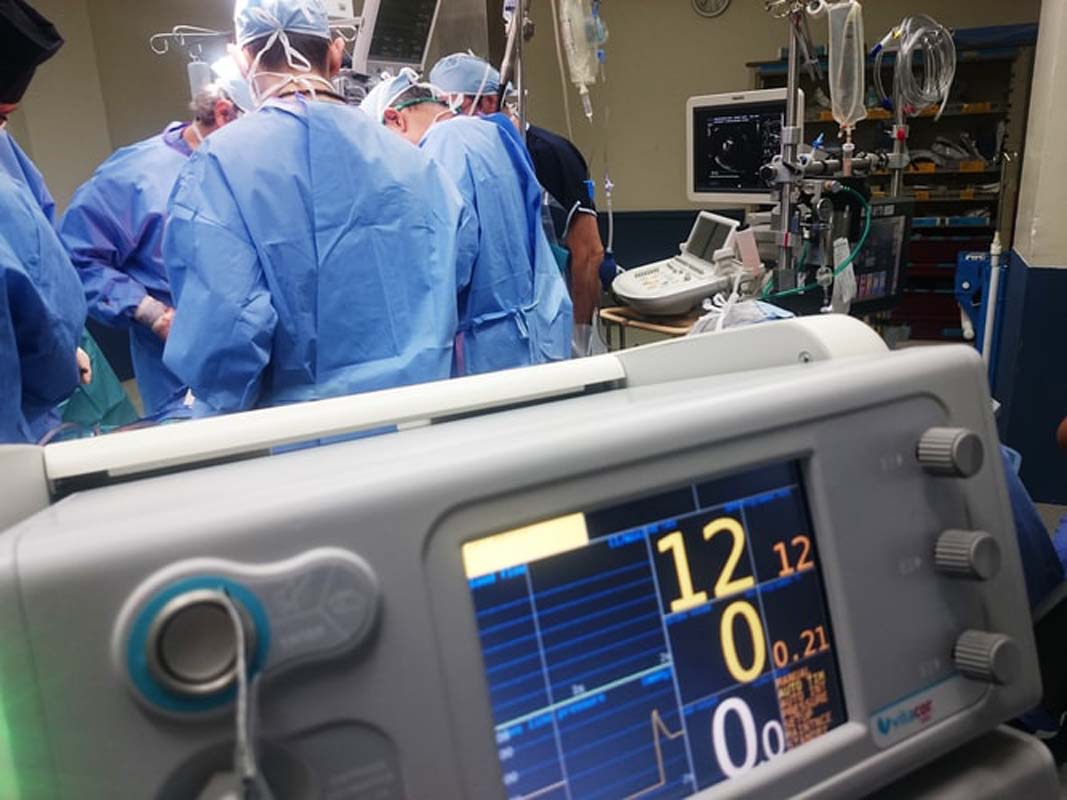
403
Sorry!!
Error! We're sorry, but the page you were looking for doesn't exist.
Doctors Complete First-Ever Transatlantic Stroke Surgery Using Robots
(MENAFN) Medical teams from Scotland and the United States have achieved what experts are calling a watershed moment in neurosurgery—completing the world's inaugural remote stroke procedure using advanced robotics, media reported Monday.
Prof Iris Grunwald of the University of Dundee performed a remote thrombectomy—a critical intervention to extract blood clots following stroke—on a human cadaver donated for medical research. Operating from Ninewells Hospital in Dundee, Grunwald manipulated robotic instruments while the body remained positioned across the city at the university facility.
Within hours, Florida-based neurosurgeon Ricardo Hanel made medical history by conducting the first transatlantic robotic surgery from his Jacksonville office, operating on human tissue in Dundee—more than 4,000 miles (6,400 kilometers) away.
The surgical team characterized the breakthrough as a potential "game changer" if regulatory authorities approve clinical implementation, emphasizing how the technology could transform emergency stroke response by enabling specialists to treat patients regardless of geographic barriers.
Time-sensitive access to specialized stroke centers remains a critical factor affecting patient recovery. Medical authorities noted that robotic intervention systems could bridge this treatment gap, particularly benefiting patients in isolated or medically underserved communities.
"It felt as if we were witnessing the first glimpse of the future. Where previously this was thought to be science fiction, we demonstrated that every step of the procedure can already be done," Prof Grunwald said.
The University of Dundee, recognized as a global training hub for the World Federation for Interventional Stroke Treatment, stands as the sole UK institution equipped to perform cadaveric procedures with liquid circulation systems that replicate authentic human blood flow.
"This was the first time that we could perform the whole mechanical thrombectomy procedure in a real human body to show that all steps of the procedure are possible," Grunwald said.
Juliet Bouverie, chief executive of the Stroke Association, hailed the transatlantic operation "a remarkable innovation."
"For too long, people living in remote and rural areas have been deprived of access to thrombectomy," she said. "Robotics like this could rebalance the inequity which exists in stroke treatment across the UK."
Research teams indicated the successful trials could accelerate worldwide implementation of remote stroke care protocols, enabling patients in geographically isolated regions to receive emergency treatment without undertaking lengthy journeys to specialized medical centers.
Prof Iris Grunwald of the University of Dundee performed a remote thrombectomy—a critical intervention to extract blood clots following stroke—on a human cadaver donated for medical research. Operating from Ninewells Hospital in Dundee, Grunwald manipulated robotic instruments while the body remained positioned across the city at the university facility.
Within hours, Florida-based neurosurgeon Ricardo Hanel made medical history by conducting the first transatlantic robotic surgery from his Jacksonville office, operating on human tissue in Dundee—more than 4,000 miles (6,400 kilometers) away.
The surgical team characterized the breakthrough as a potential "game changer" if regulatory authorities approve clinical implementation, emphasizing how the technology could transform emergency stroke response by enabling specialists to treat patients regardless of geographic barriers.
Time-sensitive access to specialized stroke centers remains a critical factor affecting patient recovery. Medical authorities noted that robotic intervention systems could bridge this treatment gap, particularly benefiting patients in isolated or medically underserved communities.
"It felt as if we were witnessing the first glimpse of the future. Where previously this was thought to be science fiction, we demonstrated that every step of the procedure can already be done," Prof Grunwald said.
The University of Dundee, recognized as a global training hub for the World Federation for Interventional Stroke Treatment, stands as the sole UK institution equipped to perform cadaveric procedures with liquid circulation systems that replicate authentic human blood flow.
"This was the first time that we could perform the whole mechanical thrombectomy procedure in a real human body to show that all steps of the procedure are possible," Grunwald said.
Juliet Bouverie, chief executive of the Stroke Association, hailed the transatlantic operation "a remarkable innovation."
"For too long, people living in remote and rural areas have been deprived of access to thrombectomy," she said. "Robotics like this could rebalance the inequity which exists in stroke treatment across the UK."
Research teams indicated the successful trials could accelerate worldwide implementation of remote stroke care protocols, enabling patients in geographically isolated regions to receive emergency treatment without undertaking lengthy journeys to specialized medical centers.

Legal Disclaimer:
MENAFN provides the
information “as is” without warranty of any kind. We do not accept
any responsibility or liability for the accuracy, content, images,
videos, licenses, completeness, legality, or reliability of the information
contained in this article. If you have any complaints or copyright
issues related to this article, kindly contact the provider above.


















Comments
No comment